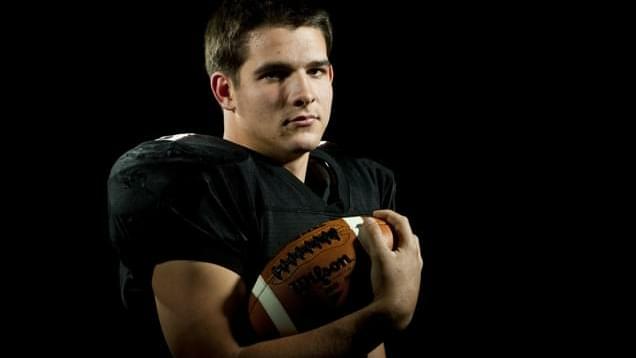
Young Utahn opts for cannabis to treat cancer
Published on 11/12/13
Brian Scott endured six grueling months of chemotherapy in 2012 only to see his acute myeloid leukemia, a fast-growing cancer of the blood, return.
The St. George man was admitted this summer to Primary Children’s Medical Center for a second, more intensive infusion of toxic chemicals in preparation for a stem cell transplant. This time, the treatments nearly killed him.
The 225-pound fullback, who carried the Hurricane Tigers to their first state championship, captured three state wrestling crowns and won a Southern Utah University football scholarship, called it quits on chemo. Brian, now 20, moved to Colorado this summer for an alternative treatment: medical marijuana.
"This is not just about kids. Adults need it, too, and not just for nausea and pain," said Brian’s mom, Jane Scott, referring to the push by a group of Utah moms to import a cannabis extract for their children with epilepsy.
The extract comes from a plant, cultivated by the nonprofit Realm of Caring Foundation in Colorado Springs, that is high in cannabidiol (CBD) but low in tetrahydrocannabinol (THC), the psychoactive chemical component that creates a high in users. It’s so low in THC that, Utah parents argue, it meets agricultural standards for hemp used in clothing and lotions.
They make their pitch Tuesday to the state’s Controlled Substance Advisory Committee, a group of doctors, cops and prosecutors that advises lawmakers on the scheduling of drugs.
Because there’s a growing waiting list for the low-THC extract, Realm of Caring reserves it for children. Brian uses another Realm product with a slightly lower CBD to THC ratio.
"Death is a possibility with or without the chemo," Jane said, "and we all decided if he lives, he will have a life and won’t just be fighting a disease for years on end."
—
‘Spitting blood’ » Brian was diagnosed at 18, weeks before he was scheduled to leave on a mission for the LDS Church to Uruguay. He was optimistic during his first round of chemotherapy in 2012 and fully intended to take advantage of his SUU scholarship, his mother said.
The cancer returned three months into his remission, and he started a second round of chemo this summer.
"The chemo attacks all the rapidly growing cells in your body, including your hair and the cells lining your mouth and esophagus, which became raw and infected the second time around," Jane said. "He was spitting blood and couldn’t eat or drink and had to be kept on IV fluids for several weeks."
The transplant doctor wanted Brian to resume chemotherapy when he was strong enough and said, "I can give you five times what you’re getting now," recalled Jane.
Brian, then 19, said, "No."
Doctors had already downgraded his five-year survival odds from 80 to 50 percent. "He just felt like his body wouldn’t live through it," Jane said.
Doing Internet research, she found studies on the cancer-arresting properties of compounds in marijuana known as cannabinoids. She watched a video by another Utah mom who had moved to Colorado Springs from Kanab to get cannabis oil for her son with leukemia.
On the July day the Scotts resolved they would make the same move, they received grave news from Luke Maese in the hematology and oncology department at Primary Children’s, the doctor closest to Brian.
The cancer, untraceable after the last round of his interrupted chemo, was back.
"We had already told him we weren’t going the transplant route," Jane wrote on a blog she kept of their experience, "to which he replied to Brian in all sincerity, ‘You’re going to die!’ "
Within weeks, Brian was settled in Colorado and taking cannabis pills from the Realm of Caring.

